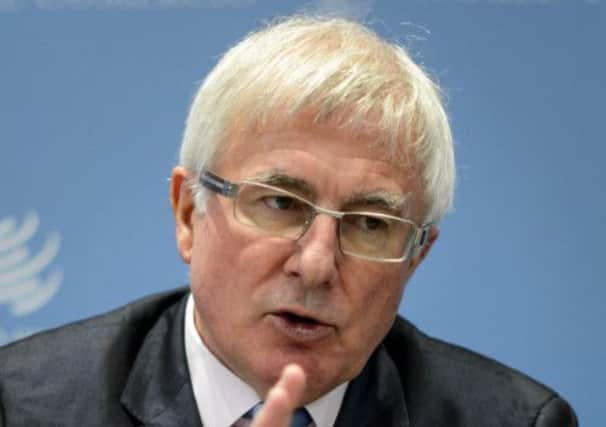China halts NZ milk powder imports after health scare


Global dairy giant Fonterra identified eight companies to which it had sold contaminated New Zealand-made whey protein concentrate, exported to China, Malaysia, Vietnam, Thailand and Saudi Arabia and used in products including infant milk powder.
Nearly 90 per cent of China’s $1.9 billion (£1.2bn) milk powder imports last year originated in New Zealand and economists said a prolonged ban could produce a shortage of dairy products in China.
Advertisement
Hide AdAdvertisement
Hide AdAustralia was caught up in the ban after some of the contaminated whey protein concentrate was exported there before being sent on to China and elsewhere.
“The authorities in China, in my opinion absolutely appropriately, have stopped all imports of New Zealand milk powders from Australia and New Zealand,” New Zealand trade minister Tim Groser said yesterday.
While there was no official word of a ban from Chinese authorities, China’s consumer watchdog named four companies that had imported potentially contaminated products from Fonterra.
In a statement on its website, the general administration of quality supervision, inspection and quarantine identified the companies as Dumex Baby Food, a subsidiary of France’s Danone, two subsidiaries of Wahaha Group, one of the largest beverage manufacturers in China, and the state-owned Shanghai Sugar, Tobacco and Alcohol company.
Some of China’s biggest food and beverage firms are said to be customers of Fonterra.
Fonterra is a major supplier of bulk milk powder products used in infant formula in China but it had stayed out of the branded space after Chinese dairy company Sanlu, in which it had held a large stake, was found to have added melamine – often used in plastics – to bulk up formulas in 2008.
More than six children died in the industry-wide scandal and hundreds became ill. Foreign-branded infant formula has since become a prized commodity in China.
The latest scare coincided with global dairy prices hovering near record highs as supply struggles to keep up with growing demand from emerging countries.
Advertisement
Hide AdAdvertisement
Hide AdOther countries also were reportedly halting imports and ordering recalls of New Zealand-made dairy products.
In New Zealand, Nutricia, a division of Danone, recalled some types of infant formulas sold under the Karicare brand.
The bacteria behind the latest scare, Clostridium Botulinum, is often found in soil. The Fonterra case was caused by a dirty pipe at a processing plant.
It can cause botulism, a potentially fatal disease that affects the muscles and can cause respiratory problems. Infant botulism can attack the intestinal system. This is the second contamination issue involving Fonterra this year.